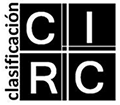Lo monstruoso femenino como revisitación de la frontera México-Estados Unidos: deshumanización y barbarie en From dusk till dawn (1996)=The monstruous-feminine as a revamping of the U.S.-Mexico Border: dehumanization and savagery in From dusk till dawn (1996)
DOI:
https://doi.org/10.18002/ehf.v0i43.7050Palabras clave:
Chicano, Robert Rodriguez, frontera, transnacionalismo, monstruoso-femenino = Chicano, frontier, transnationalism, monstrous-femaleResumen
Tomando como punto de partida diversas teorías sobre la monstruosidad en la frontera México-EE. UU (Alemán 2006; Miller y Van Riper 2012) y referentes de lo monstruoso-femenino (Kristeva 1983; Creed 1993), este artículo pretende analizar From Dusk Till Dawn (Robert Rodriguez, 1996) como un mosaico transcultural reconvertido en alegato sobre la aceptación del “otro” a través de la monstruosidad de su protagonista femenina.
This article analyses the concept of the monstrous feminine entrenchment through Robert Rodriguez’s From Dusk Till Dawn and Planet Terror. Drawing from current socio-political imaginaries that have put the spotlight on the oppressed power across women in film, the insertion of horror and the monstrosity in their narratives display a transnational process that reflects cinematic U.S.-Mexico border discourses.
Descargas
Métricas alternativas
Citas
Alemán, J. (2008): “The Other Country: Mexico, the United States, and the Gothic History of Conquest”, American Literary History, 18.3, 406-426.
Anzaldúa, G. (1987): Borderlands: The New Mestiza/ La Frontera, San Francisco, Spinsters/Aunt Lute.
Aparicio, F. R. y S. Chávez-Silverman (1997). Tropicalizations: Transcultural representations of Latinidad. Hanover, University Press of New England.
Arrizon, A. (2008): “Latina subjectivity, sexuality and sensuality”, Women & Performance. A Journal of Feminist Theory. 18.3, 189-198.
Brady, M. P. (2002): Extinct Lands, Temporal Geographies: Chicana Literature and the Urgency of Space, Durham, Duke University Press.
Creed, B. (1993): The Monstrous-Feminine, Nueva York, Routledge.
Dell’Agnese, E. (2005): “The US-Mexico Border in American Movies: A Political Geography Perspective”, Cinema and Popular Geo-Politics. Eds. Marcus Power y Andrew Crampton. New York, Routledge.
Edwards, J. D. y R. Graulund (2013): Grotesque. New York, Routledge.
Fiumara, J. J. (2012): “Grotesque Attractions: Genre History, Popular Entertainment, and the Origins of the Horror Film”. Diss. University of Pennsylvania.
Fojas, C. (2008): Border Bandits: Hollywood on the Southern Frontier, Austin, University of Texas Press.
Gonzalez, C. et.al. (2015): “Five Amigos Crisscross Borders on a Road Trip with Rodriguez”, Critical Approaches to the Films of Robert Rodriguez. Ed. Frederick L. Aldama. Austin: University of Texas Press.
Greene, D. (2005): Mexploitation Cinema: A Critical History of Mexican Vampire, Wrestler, Ape-Man, and Similar Films, 1957-1977, Jefferson, McFarland & Co.
Hollinger, V. (1997): “Fantasies of Absence: The Postmodern Vampire”, Blood Read: The Vampire as Metaphor in Contemporary Culture, en Joan Gordon y Veronica Hollinger (eds). Philadelphia: University of Pennsylvania Press.
Igler, S. y T. Stauder (2008): Negociando identidades, traspasando fronteras: Tendencias en la literatura y el cine mexicanos en torno al nuevo milenio, Madrid, Iberoamericana.
Kristeva, J. (1983): Powers of Horror: An Essay on Abjection. New York: Columbia University Press.
Marubbio, M. E. (2006): Killing the Indian Maiden: Images of Native American Women in Film, Lexington, University Press of Kentucky.
McElroy, B. (1989). Fiction of the Modern Grotesque, New York, St. Martin’s Press.
Mendible, M. (2010). From Bananas to Buttocks: The Latina Body in Popular Film and Culture, Austin, University of Texas Press.
Miller, C. J, y A.B. Van Riper (2012): Undead in the West: Vampires, Zombies, Mummies, and Ghosts on the Cinematic Frontier, Lanham, Scarecrow Press, Inc.
Segade, L. (2014): “Lo monstruoso, lo siniestro y lo grotesco en algunos relatos de la Guerra: las Malvinas como frontera”, Cuadernos de Literatura, 18.36, 211-236.
Slotkin, R. (1971): “Dreams and Genocide: The American Myth of Regeneration Through Violence”, Journal of Popular Culture 5.1, 38-59.
Descargas
Publicado
Cómo citar
Número
Sección
Licencia
Derechos de autor 2021 Noelia Gregorio Fernández

Esta obra está bajo una licencia internacional Creative Commons Atribución-NoComercial-CompartirIgual 4.0.
Los autores o autoras que publican en esta revista están de acuerdo con los siguientes términos:
- Los autores o autoras conservan los derechos de autoría de su trabajo y ceden de forma no exclusiva los derechos de explotación (reproducción, distribución, comunicación pública, transformación) a la Universidad de León, por lo que pueden establecer, por separado, acuerdos adicionales para la distribución no exclusiva de la versión de la obra publicada en la revista (por ejemplo, alojarlo en un repositorio institucional o publicarlo en un libro), con un reconocimiento de su publicación inicial en esta revista.
- Este trabajo se encuentra bajo la Creative Commons Attribution-NonCommercial-ShareAlike 4.0 International License. Puede consultarse desde aquí la versión informativa y el texto legal de la licencia.
- Se permite y se anima a los autores y autoras a difundir electrónicamente las versiones pre-print (versión antes de ser evaluada) y/o post-print (versión evaluada y aceptada para su publicación) de sus obras antes de su publicación, ya que favorece su circulación y difusión más temprana y con ello un posible aumento en su citación y alcance entre la comunidad académica.











